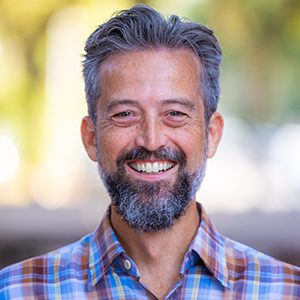
Hal Knowles
Areas of Focus:
Sustainability (Building Energy, Built Environment Resilience, Renewable Energy, Smart Buildings/Cities, Sustainable Construction, Sustainable Technology)
Summary of Teaching, Research, and Outreach Interests
Hal Knowles is interested in several interdisciplinary domains including: (1) fostering resilience and cultivating adaptive capacity across the natural-to-urban transect; (2) exploring complexity and regime shifts within linked social-ecological systems; (3) improving human and community health in the built environment, especially within the emerging ancestral health paradigm; (4) engendering social justice in community development form and function; and (5) integrating organizational leadership, conservation behaviors, energy efficiency, and renewable energy as mitigation strategies for the dual global challenges of climate change and energy transition. His current work branches building-to-city scales and involves: (1) modeling the geospatial resource impacts of alternative urban land use scenarios; (2) evaluating social equity in housing, transportation, and neighborhood opportunities; and (3) deciphering energy use patterns and building performance via nonlinear analytical methods, such as multifractal detrended fluctuation analysis (MFDFA) and cross recurrence quantification analysis (CRQA).
Teaching and Mentoring Experience
For the 2018/2019 school year, Hal will be teaching 11 credit hours in Fall 2018 (DCP 3200, DCP 4945, and URP 4000), nine credit hours in Spring 2019 (DCP 1241, DCP 3210, and DCP 3220), and six credit hours in Summer 2019 (DCP 3210 and DCP 3220). In the past, he was the lead instructor for the DCP 4941 – Practicum in SBE, a six credit course (Fall 2015, Fall 2016, and Spring 2018) and EVR 2001 – Introduction to Environmental Science, a three credit course (Fall 2017). Since the Spring 2016 semester, Hal has also served several students as their project mentor for the DCP 4290 Capstone Project in SBE. In 2017/2018, he served on an M.S. thesis committee for a student in the Department of Family, Youth, and Community Sciences. During the 2018/2019 school year, Hal is actively serving on one M.S. thesis committee and one Ph.D. dissertation committee within the Department of Urban and Regional Planning. In recent years, he has also been invited to give 42 separate guest lectures, across 18 courses, within 11 departments, at two universities.
Research, Writing, and Content Development Experience
Hal’s publications include chapter sections in four books (contributing author), four refereed journal articles (plus another two in development for submission), and 46 non-refereed publications (38 of which he was first or sole author). He has also led development of, and delivered, nine instructional multimedia curricula and related course materials for professionals and lay audiences across Florida. Hal’s experience in web-based communication and teaching includes project management and principal content development for two websites and conceptual co-developer, collaborator, and analytical consultant for two websites, one of which (My Florida Home Energy) has grown tenfold since its launch in June 2013 and has served over 48,000 users with 86% as new sessions.
Project Funding and Achievements
From 2005 through 2017 at the UF Program for Resource Efficient Communities, Hal contributed to 42 funded projects totaling approximately $2.46 million, including the following: $152,735 as PI/Manager/Instructor; $1,024,760 as Co-PI; $376,959 as Investigator; and $908,710 as Senior Personnel. In 2016, he earned his Ph.D. in Interdisciplinary Ecology from the UF School of Natural Resources and Environment and was promoted to Associate In faculty status within the UF College of Agricultural and Life Sciences. In 2018, Hal was was named one of two Florida Climate Institute Faculty Fellows.
Speaking and Conference Experience
Since 2005, Hal has spoken at 43 professional events: two international (both selected), six national (three invited, three selected), 27 state (18 invited, nine selected), and eight local (five invited, three selected). Additionally, he served as lead event planner and facilitator for GreenTrends 2006, the statewide annual conference for the Florida Green Building Coalition.